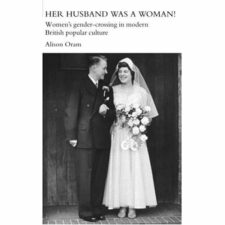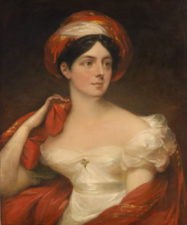During the 1972 Australian federal election, the publicity of the Women’s Electoral Lobby on the campaign to assess prospective parliamentary candidates’ awareness of feminist issues coincided with my conviction that only positive action would overcome male dominance and female subservience. I read the published results of the survey of candidates with a growing conviction that this was what was needed to expose the biases of those ruling the country. I joined WEL in July 1973. My first meeting was in the Sydney Bradfield electorate. One topic was death duty laws. In those days, since most family assets, if there were any, were held in the husband’s name, when her husband died a widow often had to sell the family home to pay heavy death duties. If the wife predeceased her husband, because few assets were in a wife’s name, a widower usually paid a negligible amount of death duty, or none at all. The meeting asked me to convene a probate action group to research the problem and present lobbying tactics for WEL to follow.
My life took on new meaning. The need to change unjust laws that had no negative effect on men, just women, fired me. I sent out letters to numerous consulates for information on death duty laws operating over seas, and followed up the lettters with as numerous phone calls. The group and I researched the position in Australia and drew up documentaion for WEL. In Western Australia Senator Negus had earlier been elected on the sole issue of abolition of death duties; his New South Wales’ representative accepted an invitation to speak at the inaugural meeting of the WEL probate action group. At a later meeting we decided not to support Senator Negus’ proposal to abolish all death duties; instead, we lobbied for abolition of death duties on estates passing between spouses only, because the law was discriminatory against women. This decision became WEL policy throughout Australia as a result of resolutions passed at the 1974 WEL National Conference in Melbourne.
Throughout 1974 all members of federal and state parliaments were lobbied and responses and queries individually answered. Toward the end of that year, a federal parliamentarian asked for a WEL submission on probate reform, offering to circulate it throughout federal parliament. The submission was drafted in January 1975 and a follow-up was produced in March 1976. Most of the work of the probate campaign (except in Queensland, where Gold Coast WEL took on the load) fell to me, but would have been impossible without the total support of WEL during the three to four years it ran. For a woman who had felt she was alone in a fight against inequality and put-downs of women, it was like ‘coming home’ for me to find in WEL so many women who understood the nature of the problem I had railed against for years.
Early in 1977 the campaign succeeded. Governments around Australia had abolished or promised to abolish in the near future, death duties levied on estates passing between wives and husbands. Soon after, state and federal governments abolished all death duties. (The Premier of Queensland, Joh Bjelke Petersen, led the way.) This had never been WEL’s policy, which was aimed directly at sex-based discrimination.
As the probate campaign neared its end, the research that had been done on the law showed up other areas of injustice. As result, the group drafted submissions to the New South Wales Law Reform Commission’s inquiry into the legal profession. Complaints were received by WEL about inadequate and inaccurate legal advice to widows by solicitors regarding probate.
Because WEL took this up, other injustices were reported to WEL. One was the reluctance of victims of rape to report the crime, due to the trauma of police and court procedures. At a WEL general meeting, a drafting party was established to produce the WEL draft bill on sexual offences. I was in the group, taking the reins as convenor when the permanent convenor was absent overseas looking at the law in Michigan. In May 1980 WEL was represented by Kerry Heubel, another memberof the group, and myself as delegates to the First National Conference on Rape Law Reform, held in Hobart by the Australian Institute of Criminology, the Tasmanian Law Reform Commission and the University of Tasmania law school. The conference endorsed the principles of the WEL draft bill, and later they formed the basis for law reforms in New South Wales, the Northern Territory, Western Australia and South Australia, and proposed in Tasmania.
Meanwhile, throughout 1977 and 1978 the WEL (Sydney) office had been receiving an increasing number of complaints about family law and Family Court practices. The WEL Family Law Action Group was formed to investigate these complaints, to research problems arising and if necessary to propose reforms and lobby government. The vast majority of complaints were about property division on divorce. The broad discretion vested in judges under the Family Law Act and the flow-on effect of their decisions, affecting settlements before registrars and out of court, was causing problems, particularly for women.
The group set down to looking at the sexism inherent in judicial decisions and registrars’ and lawyers’ advice. Our work showed that despite marriage being called an ‘equal partnership’, economic equality for women and men does not exist under present marriage and divorce laws and arrangements. Each marital partner can legally claim ownership of assets each financially contributed during the marriage, with money contributions in fact being more ‘recognised’ than non-financial contributions, because judges schooled under the old Matrimonial Causes Act1959 (Cth) remained committed to a position that did not recognise women’s work in the home as having any real legitimacy or economic value.
Because pregnancy, childbirth and child-care responsibilities usually fall on women and interrupt women’s career and income prospects, the value of a wife’s financial contribution is ordinarily much less than her husband’s. On divorce, assets are divided according to the judge’s individual opinions about respective contributions. Women are frequently disadvantaged in the process. That a few men may sometimes be financially disadvantaged on divorce is often used in debate as evidence of the court’s ‘even-handed’ approach. Yet the way the law was implemented did not accord with the hopes of the Attorney-General who put the new Family Law Act before the Parliament. Lionel Murphy had sought recognition of women’s economic contribution as equal to that of men, through unpaid work and psychological support in the home as well as any paidwork they might undertake being fairly recognised.
The WEL Family Law Action Group set out to remedy this wrong, making numerous submissions to federal members of parliament, appearing before parliamentary inquiries, and drafting provisions to reinstitute equality into family law, divorce and custody of children, for women’s responsibility for children had a huge impact on property settlement and outcomes.
WEL proposed a new regime of ‘equal rights to marital assets’ to ensure that non-financial and financial contributions were equally recognised as having economic value and contributing to the accumulation of family assets. A book arising out of our work – For Richer, For Poorer – Money, Marriage and Property Rights – was published in 1984, co-authored by my fellow co-convenor of the WEL Family Law Action Group and me. It had a huge impact on Family Court outcomes, and generated discussion, academic articles and conferences. Much, however, remained to be done.
Di Graham (c) 1987
Di Graham joined the Women’s Electoral Lobby (WEL) in 1973, becoming a driving force within the organisation and introducing lobbying methods having a profound effect on law reform and building huge respect for WEL amongst federal and state politicians, women’s organisations and the community. Prior to becoming involved in the women’s liberation movement, in the 1950s she joined the Aboriginal-Australian Fellowship and later became a member of the Federal Council for the Advancement of Aborigines and Torres Strait Islanders (FCAATSI) and a foundation member of the Aboriginal Education Council of New South Wales, of which she was at the time of writing vice-president.
This is an extract from ‘Through Life in Pursuit of Equality’ by Di Graham, published in Different Lives – Reflections on the Women’s Movement and Visions of its Future, Penguin Books Australia, Melbourne, Australia, 1987 (Jocelynne A. Scutt, ed.).

